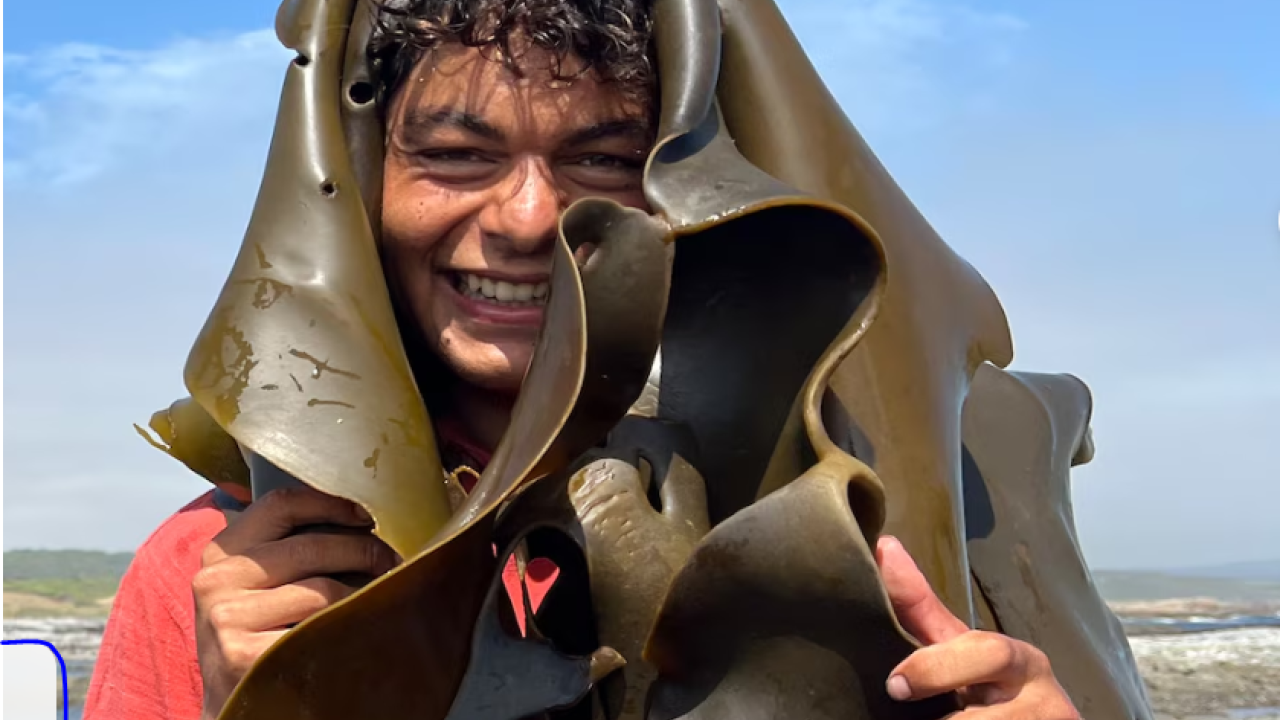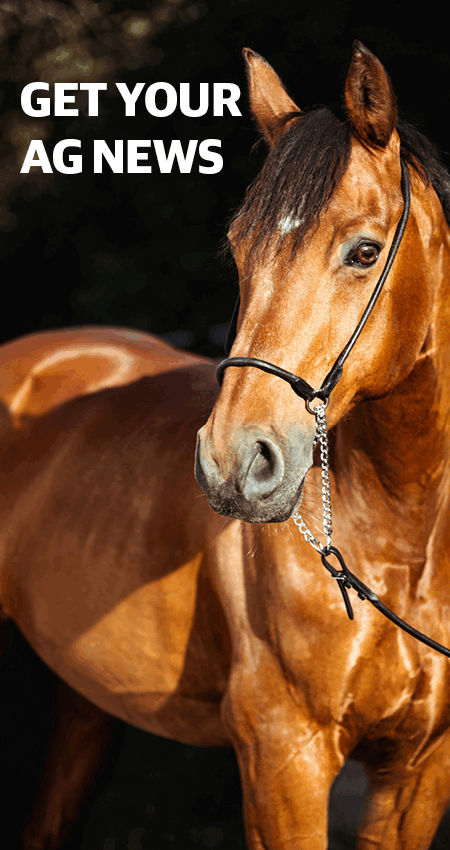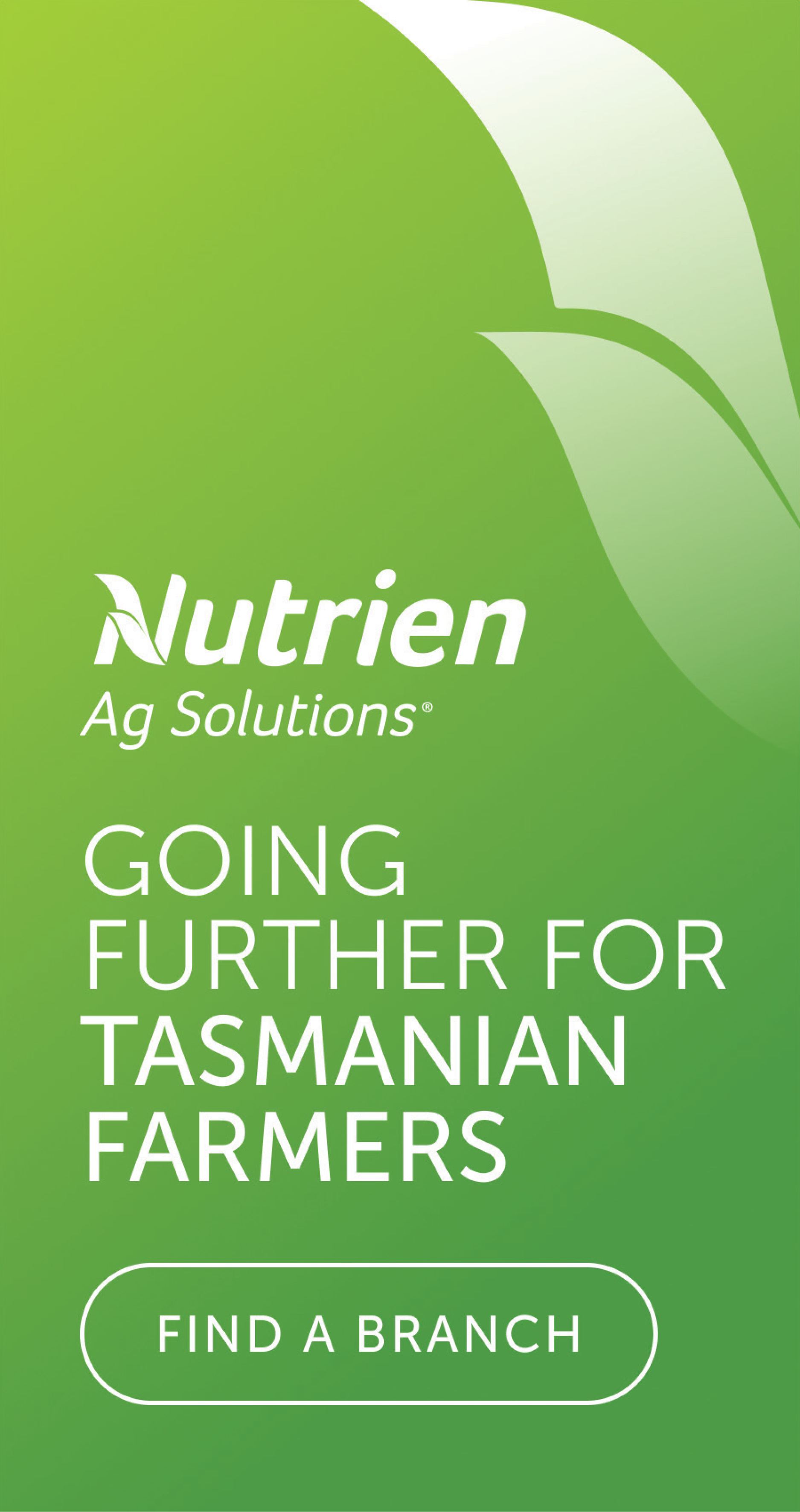Unique King Island industry under the microscope

DEB Delaney’s work could prove vital for understanding the future of the island’s marine plant fishery in the face of environmental change and shifting global markets.
The project is being undertaken through the University of Tasmania’s Institute for Marine and Antarctic Studies, one of the top marine science institutions in the world and is supported by the Blue Economy Cooperative Research Centre, which focuses on sustainable development of ocean-based industries.
Delaney’s focus is the historical and environmental trajectory of Durvillaea potatorum, more commonly known as bull kelp— particularly the unique variety found on King Island’s rugged shores and North West Tasmania.
“I’m doing a PhD on bull kelp, looking at how the distribution and quantity of kelp have changed since Kelp Industries first began operating here in 1975,” Delaney explained.
“Kelp carters are saying it’s not coming in like it used to – so my research is about looking at what’s changed, what might be causing that, and what it means going forward.”
While the sight of massive kelp fronds drying on racks at Kelp Industries is familiar to locals, the industry’s global significance is less widely understood.
Bull kelp harvested here is processed into alginate, a valuable extract used in food thickening agents, cosmetics, paints, pharmaceuticals, and increasingly in biofertilisers and biostimulants.
“It’s a billion-dollar industry globally,” Delaney said.
“In Southeast Asia, seaweed is a dietary staple. But here, it’s largely used for industrial purposes.
“Some of our kelp ends up in food products, but not on Australian tables. That cultural disconnect is fascinating.”
Delaney’s research will not only examine ecological trends like sea surface temperatures and swell patterns, but also the social and economic impact of any decline in kelp.
Her goal is to produce a series of scientific papers over the next 3 - 4 years, based on extensive fieldwork and interviews.
“Seaweed fisheries are managed like any other fishery,” she explained. “But there’s been little long-term monitoring here.
“My PhD aims to help fill that gap and offer practical insights for industry and regulators alike.”
The Department of Natural Resources and Environment Tasmania, which regulates the marine plant fishery, is a partner in the research.
So too is Kelp Industries, which has supported Delaney from the outset.
“They’ve been at the table from the beginning. They’re also helping support the community information session we’re holding in June.”
Her interviews with current and former kelp carters, regulators, and other marine users are set to begin in mid-July.
These will be complemented by scientific dive surveys, carried out by honours or master’s students from IMAS, at sites originally surveyed in the 1980s.
“We’ll re-dive those reef transects to see what’s changed – if anything – in the kelp beds. We’ll also measure biomass, vigour, weight and length, which are all indicators kelp carters say have changed.”
For Delaney, the project is more than academic.
Her partner Brian has been a kelp carter for more than 20 years, and she has seen firsthand how the industry has shifted over time.
“I was doing natural resource management consulting and had worked in catchment and coastal planning.
“Through that work I met other consultants who said ‘Why not do a PhD?’ And it just clicked.
“I’ve always believed in giving back to the community—and this is my way.”
Delaney designed the research proposal herself, approached IMAS, and secured approval through a rigorous application process.
“We’ll re-dive those reef transects to see what’s changed – if anything – in the kelp beds.
“We’ll also measure biomass, vigour, weight and length, which are all indicators kelp carters say have changed.”
For Delaney, the project is more than academic.
Her partner Brian has been a kelp carter for more than 20 years, and she has seen firsthand how the industry has shifted over time.
“I was doing natural resource management consulting and had worked in catchment and coastal planning.
“Through that work I met other consultants who “It took 12 to 18 months from initial concept to enrolment,” she said.
“It’s been a long road already, and I haven’t even started interviews yet.”
Delaney hopes the research might also inspire a new generation of King Islanders to consider marine science careers.
“Seaweed aquaculture is an expanding field and could offer opportunities for young people here,” she said.
“And thanks to the King Island Study Hub, students can now access university-level learning without leaving home.”
She praised the Study Hub’s role in supporting local education.
“It’s fantastic. I use it a few days a week myself. It offers fast internet, printing, space to work, it’s a real asset for anyone studying remotely.”
Delaney will host a public information session on Tuesday, June 11 at the King Island Golf and Bowling Club, starting at 5.30pm.
The event will outline the scope of her research and invites discussion from community members, particularly those involved in the kelp industry.
“Everyone is welcome— kelp carters, former workers and carters, community members, anyone interested in the ocean,” she said.
“It’ll be a chance to share stories, ask questions, and find out why this research matters.”
A barbecue will follow the presentation.
RSVPs by June 6 are encouraged to assist with catering, and flyers will be distributed around town in coming weeks.
For catering and information call Deb 0427 647 505.




Add new comment